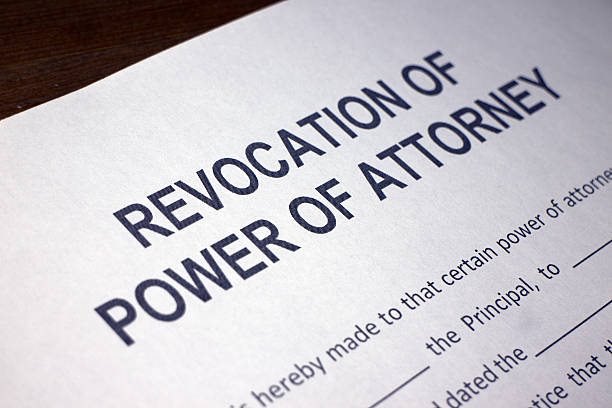Scope and Boundaries of Power: Exploring the Limits of a Power of Attorney
Introduction
In the realm of legal matters, a power of attorney holds significant importance. It is a legal document that grants authority to an individual (known as the agent or attorney-in-fact) to act on behalf of another person (known as the principal) in various personal and financial matters. While a power of attorney can provide invaluable assistance, it is crucial to understand its limits to ensure proper decision-making and safeguard the principal’s interests. This article aims to explore the depths of a power of attorney, shedding light on its boundaries and offering insights into its implications.
The Basics of a Power of Attorney
A power of attorney is a legal instrument through which a principal designates an agent to make decisions on their behalf. This authority can be broad or specific, granting the agent the power to handle financial transactions, make healthcare decisions, or manage property, among other responsibilities. The specifics of the power of attorney can vary depending on the document’s language and the principal’s intentions. Understanding the different types and limitations of a power of attorney is crucial for both principals and agents to ensure its proper usage.
Types of Power of Attorney
General Power of Attorney
A general power of attorney provides the agent with extensive powers to act on behalf of the principal. It allows the agent to make decisions regarding finances, legal matters, real estate, and other aspects of the principal’s life. However, it is essential to note that a general power of attorney becomes invalid if the principal becomes incapacitated or mentally incompetent.
Limited or Special Power of Attorney
A limited or special power of attorney grants the agent authority over specific matters or for a defined period. It is often used for situations where the principal requires assistance with a specific task, such as signing documents related to a real estate transaction while they are out of the country. Once the specified task or time period ends, the agent’s authority ceases.
Durable Power of Attorney
Unlike a general power of attorney, a durable power of attorney remains valid even if the principal becomes incapacitated or mentally incompetent. It provides the agent with the authority to act on the principal’s behalf in both financial and healthcare matters. A durable power of attorney can be an essential tool in situations where the principal is unable to make decisions due to illness or disability.
Understanding the Limits of a Power of Attorney
It is important to recognize that a power of attorney does not grant unlimited powers to the agent. There are specific limits and restrictions in place to protect the principal’s interests. Understanding these limits is crucial to ensure that the agent acts within their designated authority and does not misuse their power. Let’s explore some key aspects that define the boundaries of a power of attorney.
Fiduciary Duty

An agent appointed under a power of attorney owes a fiduciary duty to the principal. This means that the agent must act in the principal’s best interest, exercise good faith, and avoid conflicts of interest. The agent must always prioritize the principal’s welfare and avoid any actions that could harm their financial or personal well-being. Failing to fulfill this duty can lead to legal consequences for the agent.
Authority Restrictions
The authority granted to an agent under a power of attorney can vary depending on the document’s language and the principal’s intentions. It is crucial to clearly define the agent’s powers and limitations in the power of attorney document. This can be done by specifying the areas in which the agent has authority and explicitly stating any actions or decisions that the agent is prohibited from making.
Third-Party Limitations
While a power of attorney grants the agent the authority to act on behalf of the principal, some third parties may not readily accept the agent’s power without additional documentation. For example, financial institutions may require the agent to provide a certified copy of the power of attorney or follow their specific internal procedures before recognizing the agent’s authority. It is essential to understand these limitations and ensure proper documentation is in place to avoid any unnecessary complications.
Legal and Ethical Boundaries
An agent must always adhere to the legal and ethical standards governing their actions. They should not engage in any illegal activities or abuse their authority for personal gain. Acting within the bounds of the law and maintaining high ethical standards is crucial to protect the principal’s interests and maintain the agent’s credibility.
Termination of Power of Attorney
A power of attorney can be terminated under various circumstances. Some common reasons for termination include the principal’s revocation of the power of attorney, the principal’s death, or the occurrence of a specific event or condition specified in the power of attorney document. It is important to understand the conditions under which a power of attorney can be terminated to ensure a smooth transition or resolution of authority.
Revocation of Power of Attorney

The principal has the right to revoke a power of attorney at any time, provided they are of sound mind and capable of making decisions. Revocation can be done by executing a revocation document or by creating a new power of attorney that explicitly revokes the previous one. It is crucial to communicate the revocation to all relevant parties, including the agent, financial institutions, and healthcare providers, to ensure the agent’s authority is no longer recognized.
FAQs about the Limits of a Power of Attorney
1. Can a power of attorney override a living will?
No, a power of attorney cannot override a living will. A living will, also known as an advance healthcare directive, outlines a person’s wishes regarding medical treatment in the event they become incapacitated and unable to communicate their preferences. A power of attorney for healthcare decisions can work in conjunction with a living will, but the living will takes precedence when specific instructions conflict.
2. Can a power of attorney make changes to a will?
No, a power of attorney does not grant the agent the authority to make changes to the principal’s will. The power of attorney is typically limited to managing the principal’s financial and healthcare matters while they are alive. Modifying a will requires the principal’s direct involvement or the assistance of an estate planning attorney.
3. Can a power of attorney transfer property to themselves?
No, unless specifically authorized in the power of attorney document, an agent cannot transfer the principal’s property to themselves. Doing so would be a breach of the agent’s fiduciary duty and could result in legal consequences. The power of attorney should clearly outline the agent’s authority regarding property management and transactions.
4. Can a power of attorney be used after death?
No, a power of attorney ceases to be valid upon the principal’s death. After the principal’s passing, the executor named in their will takes over the responsibility of managing their estate and carrying out their wishes. It is important to establish a proper estate plan that includes a will and, if necessary, a power of attorney to ensure a smooth transition of authority.
5. Can a power of attorney refuse to act?
Yes, an agent named in a power of attorney has the right to refuse to act. However, it is important to communicate this decision to the principal as soon as possible to allow them to make alternative arrangements. If the agent has already started acting on behalf of the principal, they should take reasonable steps to ensure a smooth transition of authority to avoid any harm or inconvenience to the principal.
6. Can a power of attorney be challenged?
Yes, a power of attorney can be challenged under certain circumstances. If there are concerns regarding the validity of the power of attorney, such as undue influence or coercion, interested parties can petition the court to review
and potentially invalidate the document. It is advisable to consult with an attorney experienced in elder law or estate planning if there are concerns about the legitimacy of a power of attorney.
Conclusion
Understanding the limits of a power of attorney is essential for both principals and agents. By comprehending the boundaries and responsibilities associated with this legal instrument, individuals can make informed decisions and ensure the protection of their interests. Remember, a power of attorney should always be drafted with care and tailored to meet the specific needs and intentions of the principal. By doing so, one can harness the benefits of a power of attorney while maintaining control and safeguarding their future.
